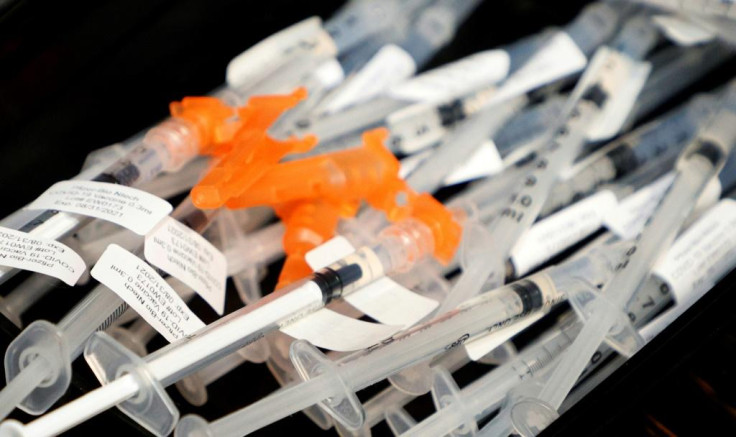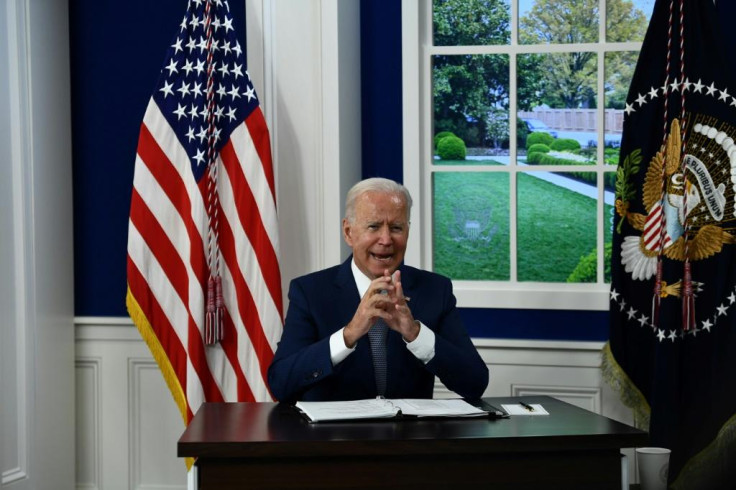Biden says US donating 'historic' extra 500 million Covid vaccines
On Tuesday, in his first speech to the United Nations as president, Biden told delegates that Washington had put more than $15 billion towards the global Covid response.
US President Joe Biden addressed a Covid-19 summit of world leaders Wednesday with a promise to donate a "historic" extra 500 million vaccines to countries struggling to overcome the pandemic.
"This is an all-hands-on-deck crisis," Biden said. "America will become the arsenal for vaccines as we were the arsenal for democracy in World War II."
The pledge from Biden at the summit, held virtually from the White House, brings the total US commitment of donated vaccines to 1.1 billion -- more than the rest of the world combined.
"We've already shipped 160 million of these doses to 100 countries," Biden said. "For every one shot we've administered to date in America, we've now committed to do three shots to the rest of the world."
The new tranche of half a billion vaccines will be from Pfizer and will go to low-income and middle-income countries.

Biden is also challenging world leaders to vaccinate 70 percent of every country by September 2022, the White House said in a statement.
"We need other high income countries to deliver on their own ambitions," he said in his opening remarks. "We're not going to solve this crisis with half measures."
Biden stressed that the surge of vaccines must only be donated, with no "political" strings attached -- a veiled dig at China in particular.
After he spoke, Spain announced at the United Nations in New York that it was boosting its commitment to 30 million total vaccines, while Japan said it would increase its contribution to 60 million.
Wealthy countries have been criticized by the World Health Organization for their plans to roll out booster shots, with the United States on Wednesday authorizing third doses of Pfizer's vaccine for elderly and at-risk populations, while much of the world faces a severe shortage in doses.
But a senior US administration official told reporters that Washington is "proving that you can take care of your own, while helping others as well."

On Tuesday, in his first speech to the United Nations as president, Biden told delegates that Washington had put more than $15 billion towards the global Covid response.
Despite the development of safe and highly effective vaccines in record-breaking time, huge disparities exist between countries with ample supply and others that have barely begun their immunization campaigns.
Just 3.6 percent of Africa's eligible population has been inoculated -- compared with an average of more than 60 percent in Western Europe.
Addressing the UN General Assembly, Malawi's leader urged both more vaccine doses and the patent rights to allow local production, a move supported by Biden but rejected by Germany amid fierce opposition from pharmaceutical companies.
"You can imagine our disappointment to be at an assembly like this rubbing shoulders with nations that are now administering booster shots while most of our people have yet to get their first," said President Lazarus Chakwera, who appeared virtually.
"This form of vaccine nationalism is wrong. It is insensitive. It must end."
Biden's summit -- technically held on the sidelines of the UN General Assembly -- included foreign leaders as well as the head of Gavi, the vaccine alliance working to distribute shots to poor countries.
The White House asked governments to close the gap in financing and supply to meet a UN-backed goal of fully vaccinating 70 percent of the world by this time next year.
While the latest global coronavirus wave peaked in late August, the virus continues to spread rapidly, particularly in the United States, which is officially the worst-hit country.
Some 4.7 million people worldwide have died since the outbreak began in China in December 2019, according to an AFP tally from official sources.
Copyright AFP. All rights reserved.
This article is copyrighted by International Business Times, the business news leader





















